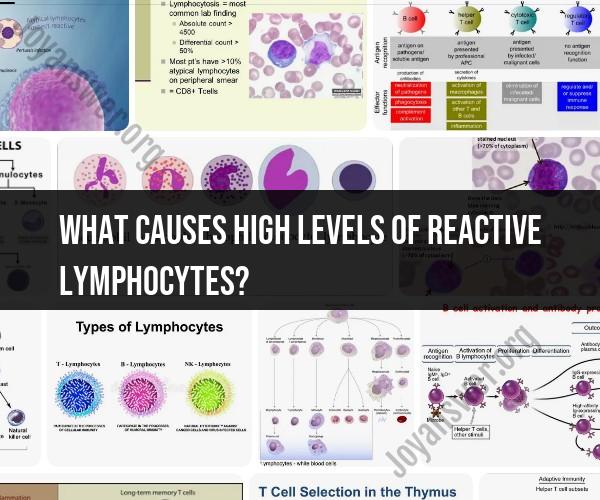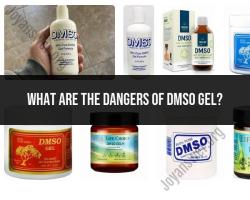What causes high levels of reactive lymphocytes?
Elevated levels of reactive lymphocytes, also known as atypical lymphocytes, can be a sign of an underlying medical condition. Reactive lymphocytes are a type of white blood cell (lymphocyte) that appears at higher levels in response to infections, particularly viral infections. Several factors can contribute to increased reactive lymphocyte counts:
Viral Infections: The most common cause of elevated reactive lymphocytes is viral infections. Viruses such as Epstein-Barr virus (EBV), cytomegalovirus (CMV), and adenoviruses can lead to an increase in atypical lymphocytes. These cells are part of the body's immune response to combat the infection.
Mononucleosis: Infectious mononucleosis, often caused by the Epstein-Barr virus (EBV), is a notable condition associated with a significant increase in atypical lymphocytes. It can lead to symptoms such as fever, sore throat, and swollen lymph nodes.
Cytomegalovirus (CMV) Infection: CMV is another virus that can lead to an elevation of reactive lymphocytes, particularly in immunocompromised individuals.
Other Viral Infections: Various other viral infections, including influenza, HIV, hepatitis, and others, can result in increased atypical lymphocyte counts.
Bacterial Infections: In some cases, bacterial infections can cause an increase in reactive lymphocytes. For example, pertussis (whooping cough) can lead to atypical lymphocytosis.
Medications: Certain medications, particularly antiepileptic drugs and some antibiotics, can lead to an elevation in atypical lymphocytes. This is a less common cause compared to infections.
Autoimmune Disorders: In some autoimmune diseases, such as systemic lupus erythematosus (SLE), reactive lymphocytosis can occur as part of the immune system's response to the underlying condition.
Hematological Disorders: Some hematological disorders, like chronic lymphocytic leukemia (CLL), can cause elevated levels of atypical lymphocytes.
Stress and Other Factors: Stress, whether emotional or physical, can influence the immune system and potentially lead to increased reactive lymphocytes. However, this is not a common or direct cause.
It's essential to note that an elevated count of reactive lymphocytes alone is not a specific diagnosis. Instead, it's often a marker or indicator of an underlying condition, and further diagnostic tests and medical evaluation are needed to determine the exact cause.
If you or someone you know has elevated reactive lymphocyte levels, it's advisable to consult a healthcare provider for a comprehensive evaluation and appropriate management. The specific cause and treatment will depend on the underlying condition responsible for the increased atypical lymphocytes.
High Levels of Reactive Lymphocytes: Causes and Implications
Reactive lymphocytes are lymphocytes that are actively responding to an infection or other foreign invader. A high level of reactive lymphocytes in the blood, also known as lymphocytosis, can be caused by a variety of factors, including:
- Infection: Bacterial, viral, and parasitic infections can all cause lymphocytosis.
- Autoimmune diseases: Autoimmune diseases, such as rheumatoid arthritis and lupus, can also cause lymphocytosis.
- Cancer: Some types of cancer, such as leukemia and lymphoma, can also cause lymphocytosis.
- Medication side effects: Some medications, such as corticosteroids and anticonvulsants, can cause lymphocytosis as a side effect.
- Other medical conditions: Other medical conditions, such as HIV/AIDS and tuberculosis, can also cause lymphocytosis.
Understanding Lymphocytes and Their Functions
Lymphocytes are a type of white blood cell that plays a vital role in the immune system. They are responsible for identifying and destroying foreign invaders, such as bacteria, viruses, and cancer cells.
There are three main types of lymphocytes:
- B cells: B cells produce antibodies, which are proteins that bind to and neutralize foreign invaders.
- T cells: T cells directly attack and destroy foreign invaders.
- Natural killer (NK) cells: NK cells are a type of lymphocyte that can kill infected cells and cancer cells without prior sensitization.
Medical Conditions and Factors Leading to Lymphocyte Reactivity
As mentioned above, a high level of reactive lymphocytes in the blood can be caused by a variety of factors, including infections, autoimmune diseases, cancer, medication side effects, and other medical conditions.
Here are some specific examples of medical conditions and factors that can lead to lymphocyte reactivity:
- Infections: Viral infections, such as mononucleosis and hepatitis C, can cause lymphocytosis. Bacterial infections, such as tuberculosis and Lyme disease, can also cause lymphocytosis. Parasitic infections, such as malaria and toxoplasmosis, can also cause lymphocytosis.
- Autoimmune diseases: Autoimmune diseases, such as rheumatoid arthritis and lupus, can cause lymphocytosis because the body's immune system is attacking its own tissues.
- Cancer: Some types of cancer, such as leukemia and lymphoma, can cause lymphocytosis because the cancer cells are multiplying rapidly.
- Medication side effects: Some medications, such as corticosteroids and anticonvulsants, can cause lymphocytosis as a side effect.
- Other medical conditions: Other medical conditions, such as HIV/AIDS and tuberculosis, can also cause lymphocytosis.
Diagnostic Tests and Medical Evaluation for Lymphocyte Levels
A high level of reactive lymphocytes in the blood can be detected through a blood test called a complete blood count (CBC). A CBC measures the levels of all types of blood cells, including lymphocytes.
If a CBC shows a high level of lymphocytes, the doctor may order additional tests to determine the cause. These tests may include:
- Blood tests: The doctor may order additional blood tests to look for signs of infection or other medical conditions.
- Imaging tests: The doctor may order imaging tests, such as an X-ray or CT scan, to look for signs of infection or cancer.
- Biopsy: In some cases, the doctor may need to perform a biopsy to take a sample of tissue for examination.
Managing Health and Wellness with Knowledge of Reactive Lymphocytes
If you have a high level of reactive lymphocytes in the blood, it is important to work with your doctor to determine the underlying cause and develop a treatment plan.
Treatment for lymphocytosis will vary depending on the underlying cause. For example, if the lymphocytosis is caused by an infection, the doctor will prescribe antibiotics or other medications to treat the infection. If the lymphocytosis is caused by cancer, the doctor may recommend chemotherapy, radiation therapy, or surgery.
In addition to medical treatment, there are a number of things that you can do to manage your health and wellness if you have lymphocytosis. These include:
- Eating a healthy diet: Eating a healthy diet can help to support your immune system and improve your overall health.
- Getting regular exercise: Regular exercise can also help to support your immune system and improve your overall health.
- Getting enough sleep: Getting enough sleep is important for overall health and well-being.
- Managing stress: Stress can weaken the immune system, so it is important to find healthy ways to manage stress.
If you have any questions or concerns about your lymphocyte levels, be sure to talk to your doctor.













